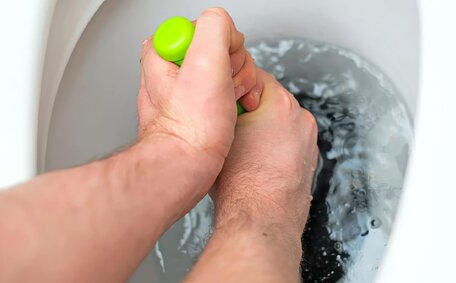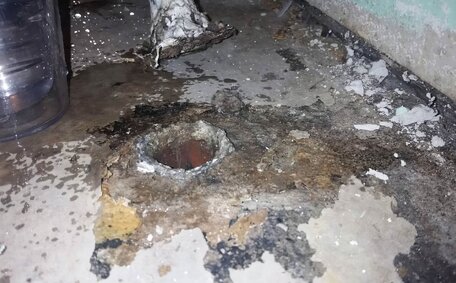Understanding the Causes of Plumbing Emergencies
Common plumbing emergencies often arise from long-term neglected issues or lack of preventive maintenance. Neglecting routine plumbing checks can cause minor issues to morph into major plumbing disasters requiring emergency repairs. Understanding the causes of plumbing problems enables homeowners to protect their systems and prevent expensive unexpected issues.
High water pressure, sediment buildup, corrosion, and blocked drains are common causes plumbing mishaps. A neglected water leak can, regardless of size, damage your home extensively, leading to water damage and mould proliferation if not attended to promptly.
Being aware of subtle signs like changes in water flow, temperature, or pressure, thanks to regular maintenance, provides an early warning to forestall a potential plumbing issue.
Equipping yourself with regular plumbing maintenance and addressing anomalies when comes to maintenance can do a lot to prevent many emergencies from creeping into your daily life. However, when it comes to plumbing services, it’s prudent to engage a local plumber in the first place for certain problems to avoid financial loss or safety hazards. Recognising when to seek professional help for plumbing issues can prevent further damage and save homeowners both money and stress.
Implementing Preventative Maintenance
Check your plumbing system on a regular basis, as part of a preventive maintenance plan, to thwart costly disasters and maintain it in peak condition. Consistent plumbing maintenance can help prevent water issues from becoming major emergencies demanding expensive repairs.
Include regular maintenance checks in your plumbing maintenance plan to avert future problems.
Inspect where your pipes fixtures are conscientiously for any signs of wear, such as cracks or leaks, to maintain their integrity. Clearing drain blockages is essential to maintain consistent water flow. Replace ageing parts like washers before they fail.
Ensure the wellbeing of your hot water system by checking on your water heater, performing cleaning and descaling activities, replacing water filters, and making sure your gutters and downpipes are clear of debris as part of your maintenance checklist. Keep your checklist updated with detailed records, including inspections and parts replacements to inform future upkeep.
It’s important to manage minor issues with DIY maintenance tips, and to recognise when professional plumbing services are required. Any leaks, pressure issues or sewer backups should prompt you to call professional assistance as soon possible to prevent catastrophe. Employing diligent preventative strategies is key to preserving plumbing health and minimising costs through quick issue resolution.
Inspecting Your Plumbing System Regularly
Regular inspections can save you from the worsening of water leaks and to know where to look is key in preventing a situation from escalating into a plumbing emergency. Schedule monthly checks of key plumbing components:
- Pipes - Examine pipes in exposed areas for cracks or leaks and observe any temperature changes.
- Faucets - Inspect for drips or reduced water flow. Replace worn washers.
- Toilets - Take time to assess situation for any cracks, leaks, and reduced flushing power. Descale tank and bowl.
- Water heater - Drain sediments. Routinely check water temperature and pressure settings.
- Drains - Clear hair, grease. Pour drain cleaner monthly.
While DIY methods are appropriate for small plumbing issues, persistent clogs or low pressure require the attention of an expert.
Routine inspections can go a long way in saving thousands by extending your plumbings lifespan, avoiding emergency repairs over time. An hour spent inspecting pipes with professional plumbers today could avert burst pipe incidents that may otherwise lead to costly repairs.
Maintaining Proper Water Pressure
Maintaining proper water pressure is critical for the health of your pipes and ensuring a steady flow to prevent household disruptions. High water pressure can strain your pipes, posing a significant risk for bursts, while low pressure can adversely affect your house’s performance.
Use a pressure gauge to check your home’s plumbing pressure. The optimal pressure range is between 345 to 414 kPa for municipal systems, and 240 to 345 kPa for well water systems.
If pressure runs too high:
- Install a shutoff valve or pressure reducing valve on the main line.
- Use pressure balancing taps to maintain flow.
For low pressure:
- Check for blockages restricting flow.
- Clean aerators and shower heads.
- Consider a booster pump if on well water.
Our expert team’s monthly pressure checks can protect your home’s plumbing from unnecessary stress. Dramatic fluctuations in water pressure necessitate the review of a licensed plumber to prevent pipe damage or failures.
Clearing Clogs and Drain Blockages
Clogged drains and pipes often stem from everyday activities that introduce debris into plumbing systems. Refraining from sending fats, oils, and cooking oil down drain from your kitchen sink prevents congealed blockages. Use sink strainers to catch food scraps and avoid flushing excessive toilet paper to protect your drains by disposing of waste properly.
To address minor clogs:
- Use a plunger or drain snake to dislodge debris in clogged drains
- Pour 1⁄2 cup baking soda followed by 1⁄2 cup vinegar down your drains. Cover and let fizz for 5 minutes then flush with hot water
- Use a commercial drain cleaner following instructions
It’s important to note, however, that if you notice any severe or recurring clogs, gurgling drains, foul odours or backed up sewer lines, these indicate serious obstructions requiring a licenced plumber. Attempting to clear major blockages can also risk damaging pipes and causing contamination.
Preventive measures remain essential for ensuring optimal drain health. Using enzymatic drain cleaners regularly can help keep your plumbing clear of buildup and prevent major obstructions. To keep your plumbing system in top condition, avoid overloading drains with grease, hair and solid waste.
Checking and Replacing Faulty Valves
Regular valve checks are crucial for early issue detection and are vital for maintaining control over your water flow. However, neglecting to routinely inspect valves permits undetected issues to escalate, potentially leading to problems infiltrating into your home. Faulty valves that fail to stop water flow can lead to disastrous leaks and flooding.
Stay vigilant for corrosive signs on valves, note any that don’t fully open or close, and check for leaks near valves even when turned off. Regularly inspect valves on exposed pipes, behind your washing machine, and under sinks. Turn water on and off, checking flow stops completely.
Replace immediately if any valve shows problems that might affect your water flow. Shut off water flow using isolation valves either side of the faulty part during the repair to avoid any system damage. Deploying the turn off mechanism on your main water valve can protect your plumbing system from further damage, which can become extensive from unseen leaks.
While advanced valve issues require a licenced plumber’s expertise, early intervention from routine inspections kann prevent valves degrading into catastrophic failures. Factor valve checks into monthly plumbing maintenance to avoid leaks spiralling into water damage emergencies.
Troubleshooting Common Plumbing Issues
Many common plumbing issues can be resolved with simple DIY solutions before resorting to professional help. It’s important to recognise when a problem exceeds your abilities and requires urgent professional assistance.
Clogged Drains
For slow drains, pour half a cup of baking soda followed by half a cup of vinegar down the drain.
Cover and let fizz for 5 minutes, then flush with hot water. Use a drain snake to manually dislodge debris. Avoid overloading drains with grease, hair and food waste.
Leaking Faucets
Inspect faucet washers and O-rings for cracks and replace them if necessary. Apply pipe joint compound to reseal threads if leaks continue. Major leaks often suggest interior valve failure and the need for replacement.
Running Toilet
Check the chain, flapper valve and fill valve for issues. Adjust or replace parts as needed. For persistent running not remedied by repairs, the tank may require replacement.
For major leaks, bursts or sewer backups, immediately turn off water supply and summon emergency plumbing services to prevent extensive water damage and contamination.
When Professional Help is Needed
For Major Repairs and Replacements
While minor leaks and clogs might be manageable DIY tasks, some plumbing jobs necessitate the expertise of a licenced professional. Avoiding costly repairs involving pipes inside walls/floors, sewer line replacements, or installation of new fixtures and appliances necessitates an emergency plumber.
Undertaking significant repairs without the requisite training and tools risks causing additional damage or injury, highlighting the need for a trustworthy plumbing service. The complexities around permits, codes, and materials also demand a professional plumber’s oversight.
For Legal Compliance and Safety
All plumbing works must adhere to local plumbing codes and safety standards. Licenced plumbers hold accredited qualifications, $20 million public liability insurance, and follow regulations regarding:
- Backflow prevention devices
- Thermostatic mixing valves (TMVs)
- Water efficiency measures
- Gasfitting compliance
Attempting repairs without certified training or appropriate safeguards could endanger your household through contamination or faulty works leading to leaks, floods or scalds.
For complete reassurance on the Gold Coast, our team of emergency plumbers is ready to tackle a wide range of repairs and installations, upholding the highest standards. We pull required permits, provide certified TMVs and backflow prevention where mandated, and ensure full compliance with Australian plumbing regulations for your safety.






